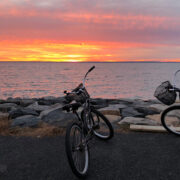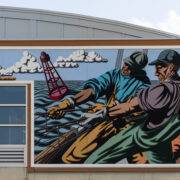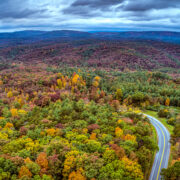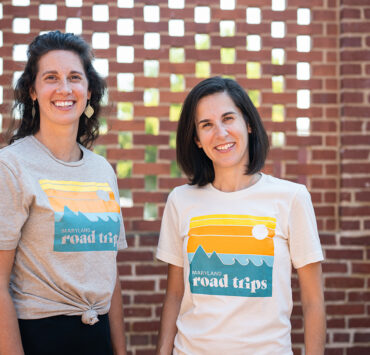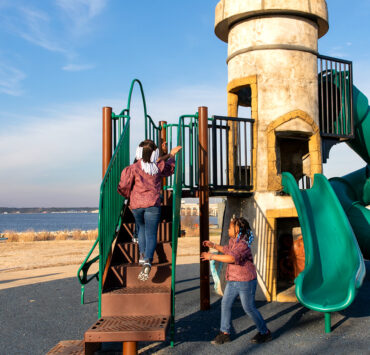A Road Trip Brought Me and My Husband Together
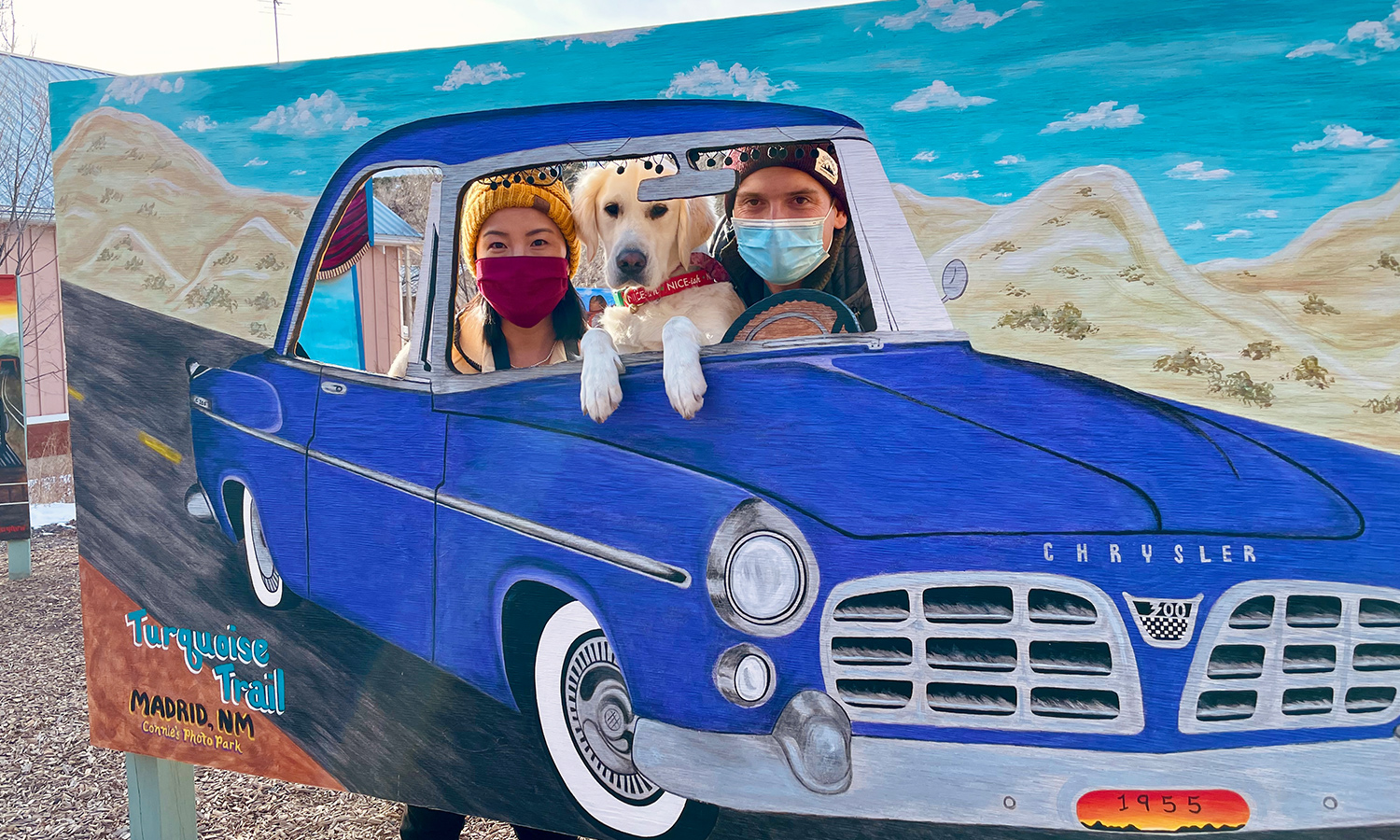
Road tripping with loved ones inevitably involves a series of negotiations—where to stop, what to listen to, how much to go above the speed limit, and what should be the speed limit. For my husband and me, driving is a constant exercise in compromise.
While we’re pretty similar people, on the road, we could not be more different. I love to drive and go fast. I get a strange thrill when I can shave off a few minutes from the ETA, like beating a game only I know I’m playing. I feel conflicted about self-driving cars because I derive so much freedom and pleasure from the act of driving itself. Having control over the wheel to take myself where I want to go gives me the confidence that I lack in most areas of my life.
My husband Andrew, on the other hand, would be happy never driving another day in his life. His car of choice is whatever one has the most innovative safety features, and his sweet spot is behind a caravan of cars in the slow lane.
It would be perfect but for the fact that he doesn’t trust my driving. Even if he’s exhausted, he won’t let himself sleep while I’m at the wheel for fear that I might go 20 miles over the speed limit or fumble with the radio. In the driver’s seat, I’m relegated to someone who needs help with basic tasks.
“Can I help you with that?” he’ll offer as I reach for my water bottle.
“That would be great,” I’ll oblige, even though I’m perfectly capable of twisting open a cap.
The purpose of his excessive help (and my resigned acceptance) is to ensure that 100% of my focus is on the road so that we can avoid exchanges like this:
“You didn’t see that car change lanes into your blind spot,” he says.
“Well, I’m not changing lanes, so I’m not paying attention to my blind spot,” I respond.
“That means you’re not driving defensively,” he shoots back. We launch into a debate about blind spots as our golden retriever sighs audibly in the backseat.
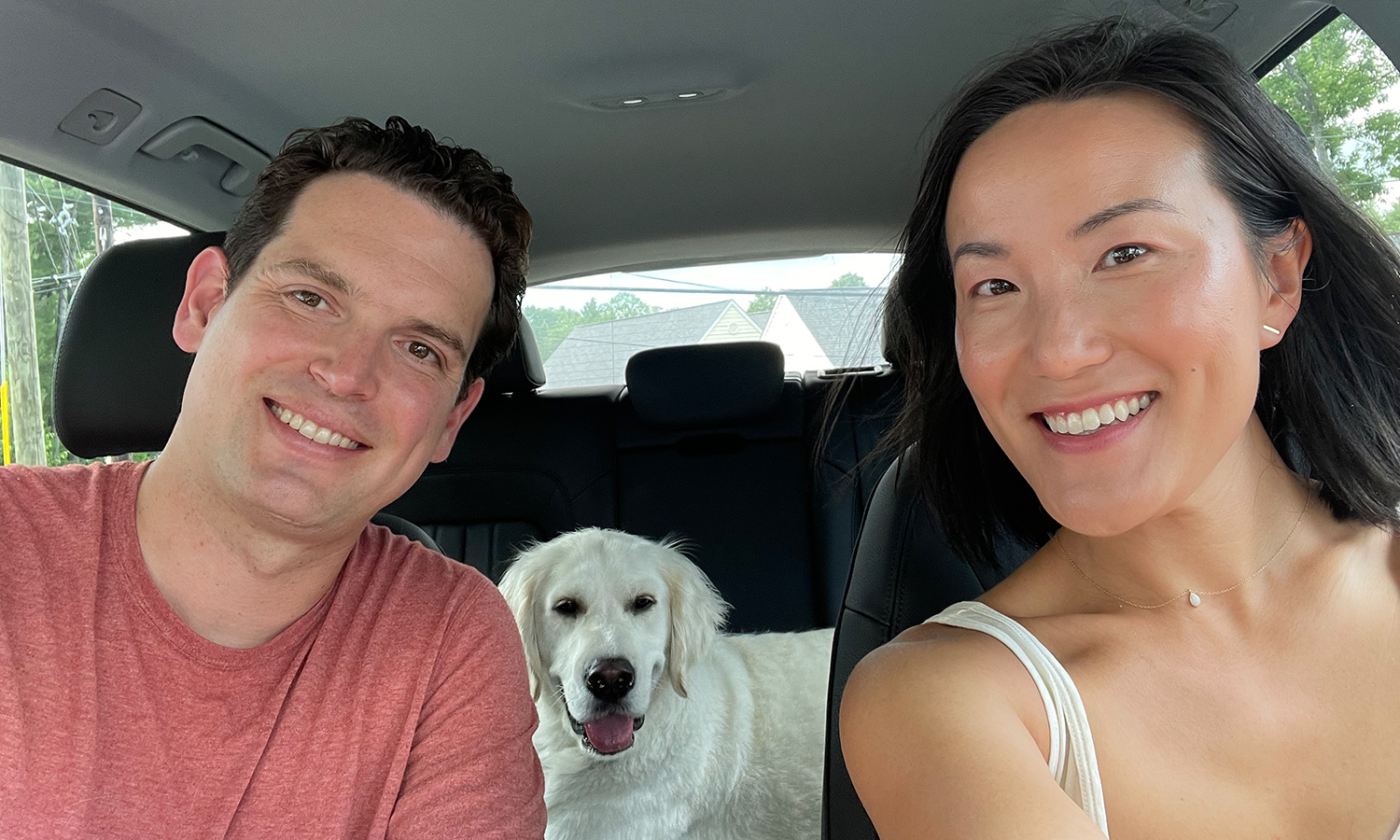
Though Andrew is completely against micromanaging at work and at home, he shamelessly does it in the car, micromanaging Google Maps even by insisting on giving me more detailed directions sooner and more frequently. Such is the nature of our road trips: me wanting to be free and untethered and him wanting to be my internal cop, blind spot alarm, GPS, and deejay.
I can’t say I’m not guilty of having the same controlling urges. Sometimes when Andrew is driving, I want to grab the steering wheel and pass for him as he dillydallies waiting for the perfect moment. Or when he drives to the far end of a parking lot away from other cars to avoid getting the car dinged. What is it about driving that makes people think that there is a wrong way and a right way and that they can do it better?
We’ve spent a lot of time on the road together during the pandemic. From Colorado to New Mexico, Maryland to Maine, we’ve been taking advantage of remote work to live in places we’ve always wanted to. On an early spring trip to Northern California, however, we had a mission. We were going to the Sierra Nevadas to spread Andrew’s dad’s ashes.
We spent several weeks quarantining on the beautiful shores of Half Moon Bay, reuniting with our favorite restaurants in San Francisco and Berkeley (and with friends, of course). We had been putting off the task that brought us there and the three-hour drive to Camp Connell, a tiny gold rush town 90 miles south of Lake Tahoe where Andrew spent every summer with his dad growing up.
In the nine years that I have known my husband, I have never gotten a complete picture of his dad. Andrew rarely talks about him, and sadly, I never got to meet him. But sitting together in a car, it was hard to avoid the subject that brought us where we were. When Andrew wants to avoid a conversation, he typically goes for a run, promising to come back to it later. But there is no place to run when you’re in a car. When you’re road tripping, you only have time and are forced to confront your thoughts head-on—thoughts that not even music can drown out.
The alternative would be to sit in awkward silence. A friend of mine said she once got into a huge fight with her partner in the car and proceeded to drive the next three hours without either of them speaking a word to each other. I honestly don’t know how that’s possible. Sitting silently next to each other reading or working is one thing. Sitting silently next to each other in a car is another.
We hit a stretch of highway with a speed limit of 70 and no cars in sight. I could feel him relax a little next to me in the passenger seat and seized the opportunity to casually ask what summers with his dad were like. Instead of directly answering my question, he tells me about the drive to their family’s camp from the airport. His dad would always make a detour to stop at his favorite hot dog joint—Kasper’s with a “K” in Oakland (not to be confused with Casper’s with a “C”, the other hot dog joint in town).
“He always insisted that Kasper’s was way better than Casper’s,” he says.
“How many Kasper’s hot dogs do you think your dad ate in his lifetime?” I ask, intrigued. For some reason, the thought of his dad having a strong preference for food surprised me.
“I don’t even want to know,” he says, shaking his head.
He starts reminiscing about other family members from his dad’s family—his uncle, who talks even more than his dad, and his grandmother, who would tease the kids with her sadistic personality.
After a couple more anecdotes, I begin piecing together a fuzzy picture of his dad’s family and what it must’ve been like to spend summers with such big, quirky personalities. No wonder Andrew was such an introvert.
Suddenly, he says, “I really miss my dad.” I turn to look at him. I couldn’t tell if he was talking to me or admitting it to himself, but even from his profile, I could see that his eyes were tearing up. Not knowing how it feels to lose a parent, I feel completely useless and don’t know the right thing to say. We’re silent, each of us sitting with our vulnerability, a rare moment in our relationship. Though I’m tempted to ask more questions about his dad, I don’t, wanting to simply cherish this moment that the road had given us. I imagine memories rushing back to him at 70 mph and him bravely accelerating to a place where memories of his dad fill the air, thick like the smell of campfire at dusk.
The stretch of highway narrows and gives way to a windy road. This must be the climb that he had warned me about earlier that we would have to do before reaching the camp. We had planned on arriving before dark, but it was sunset, and we still had 30 minutes to go. The rest of the way would take all our focus. He grips the steering wheel tighter as if to regain some control. I reach over to stroke his back, a measure that always calms and relaxes him. It doesn’t bother me that he is driving slow. I’m just grateful to be on the journey with him.
Lead Photo: Gina Chen
About the Author
Gina Chen
Gina is a writer, yoga teacher, and career coach.Her love of food and self-discovery has led her to travel and live all over the world, including San Francisco, Chicago, Bali, and her hometown of Chengdu. She currently lives in Maryland with her husband and English Cream Golden Retriever. Follow her @ginachenart




